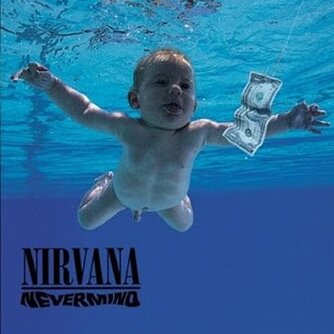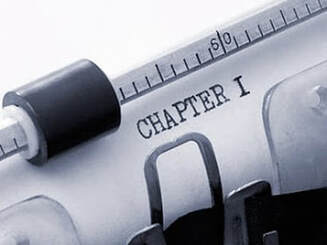 I don't remember exactly when it happened, but I do know that it coincided with another transition that was happening at the time, at least in my world. The year was 1991, and I was only then exploring life outside of what I already knew. As was the music industry. The timing was perfect. Nirvana's "Nevermind" was just there one day, as was the first and most earth-shaking single off the record, "Smells Like Teen Spirit." The song was soon followed by most all of the remaining, radio-friendly tracks that played like the soundtrack of my life then, along with Pearl Jam and everything else that was being pushed through the system. But I was oblivious to the actual sequence of events, knowing only that I really liked the music and never really making a noteworthy transition in my mind that what came before was dead and that I was no longer a part of it. It just became "not real" anymore, replaced instead with the spirit of the music and the musicians who were making this new music, very much akin to the spirit of the 1960s in my opinion, where a Romantic introspection was taking place that was designed to eventually change the world. It was why I latched onto the charismatic Kurt Cobain as my generation's John Lennon, a perspective that wasn't unique to people my age, but one that would eventually play out in a grim parallel of death and martyrdom. It would also raise a discussion only a few years later that stayed with me to this day. The year was 1994, and I was in one of my writing courses at the University of New Orleans when the topic came up of what Kurt Cobain meant to the youth of his generation in comparison to what John Lennon represented to his. And I remember being shocked that so many students dismissed Cobain as just another troubled addict who ended up doing the inevitable, claiming that he "took the coward's way out," and all the other stock reactions that people have who seem almost jealous that they possibly didn't have the courage to do what they really wanted to do (this is generally a very strong opinion of mine when it comes to reactions to suicides, but that's for a different piece). The result was that John Lennon -- who keep in mind, I hold absolutely dear -- won out in a landslide as to the more influential artist, and for some reason, this sent me right to our assigned journal exercise that night, an assignment that I knew would have to be turned in, and one that I knew was going to make a ripple. I don't remember exactly what I wrote (if Hurricane Katrina hadn't claimed all of my college notes and materials I'd be a much happier man, that's for sure), but I do remember the line: "Back off. We don't want or need your sympathy." And I'm absolutely positive that this was aimed directly at the Lennon sympathizers, or to those who just didn't understand what it was I did then, to the point where I felt the need to refer to myself as part of a "we," as if being a member of some Cobain cult! This was what Nirvana's "Nevermind" and the records that followed did for me, or more to the point, to me. It was an interesting time. But perhaps more interesting was the mark in the margin made by my professor, right next to the line I mentioned, where she simply drew a red exclamation point. Yeah! At least I had one.  Not that I was ever really out of the game, but by way of a quick update, the manuscript that I've been chronicling the production of here has not only been completed, but is now in the hands of beta readers and editors alike. In addition, I've been preparing to begin writing a new book, my fourth, and it's a novel that will mark a certain departure for me stylistically. This new one is completely under wraps, however, and probably won't get mentioned here again for quite some time. Shhh! But this puts me in the first-time position of being in both post and pre-production on two separate novels, and when I factor in the calendar event of my two-year sober point back on the 9th of this month, never before have I felt so back in the game. My first two books had been written, re-written, and then re-written again and again by the time I made the haphazard decision of self-publishing. Once again, I don't recommend it, even though back when I did it -- and I'm only going back to 2001 on the first novel -- self-publishing meant that a publisher would actually print your book cover to cover on a "print-on-demand" basis. Nowadays, eBook publishing has put a nice little dent in the business model for both vanity presses and traditional publishers alike, being that it seems that self-published eBooks are actually making money for their authors. I really don't know that this new trend has loosened the grip on the very secured route of traditional publishing. That is, has the process for getting a manuscript through the system, from editor to agent to publisher gotten any easier simply because of competition with the growing online industry? I suppose I'm going to find out, because the thought of self-publishing online or in any other format again is an absolute last resort for me at this stage of the game. It's all or nothing. Either way, someone has to write the books, right? |
Categories
All
Archives
February 2021
|